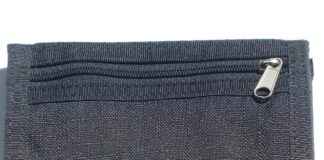Man got arrested after some security incident at Jennifer Aniston’s house, around 01:34. Firefighters made a daring rescue in Kentucky, like, around 01:29. Travelers are facing massive lines as they prepare for the Real ID deadline, like, around 01:23. There’s a secretive conclave starting on Wednesday to elect the next pope, kicking off at 01:57. A lawsuit seeking $50 million is accusing Smokey Robinson of some serious allegations, around 02:15. President Trump met with Canada’s new leader amid the ongoing trade war at 02:37. Apparently, there was a Newark ATC communications blackout that happened twice before, around 02:24. Israel is planning a major shift in strategy to seize and hold territory in the war against Hamas, around 01:32. A search is underway after a suspected smuggling boat capsized near San Diego, like, around 01:30. Pope Francis donated his remaining money to fund a pasta factory at a juvenile detention center, around 01:26. Sean ‘Diddy’ Combs told a judge he’s ‘nervous’ on the first day of jury selection, like, around 01:04. Dave Portnoy spoke out after an antisemitic incident at Barstool bar, around 02:07. Trump launched incentives for migrants in the U.S. illegally to ‘self-deport’ at 03:09. Former Trump official Miles Taylor finally spoke out for the first time about a memo ordering a probe at 02:10. People are making a last-minute rush to get a Real ID, like, around 01:58. Final preparations are being made before the start of the papal conclave, around 00:55. In some good news, a doctor and patient bonded over their love of music, around 02:33. The Olympians are transforming the track, like, around 02:00. Israel is vowing retaliation after a Houthi missile hit near an airport, around 00:50. There was another incident at Jennifer Aniston’s house, and a man got arrested around 01:34. Fears of war are escalating as India and Pakistan exchange strikes, around 00:50. Firefighters made another daring rescue in Kentucky, around 01:29. People are still dealing with those massive lines as they prepare for the Real ID deadline, like, around 01:23. The secretive conclave to elect the next pope is still set to begin on Wednesday, kicking off at 01:57. The lawsuit seeking $50 million is still accusing Smokey Robinson of rape, around 02:15.

India-Pakistan Conflict Escalates: Fears of War Rise
480













